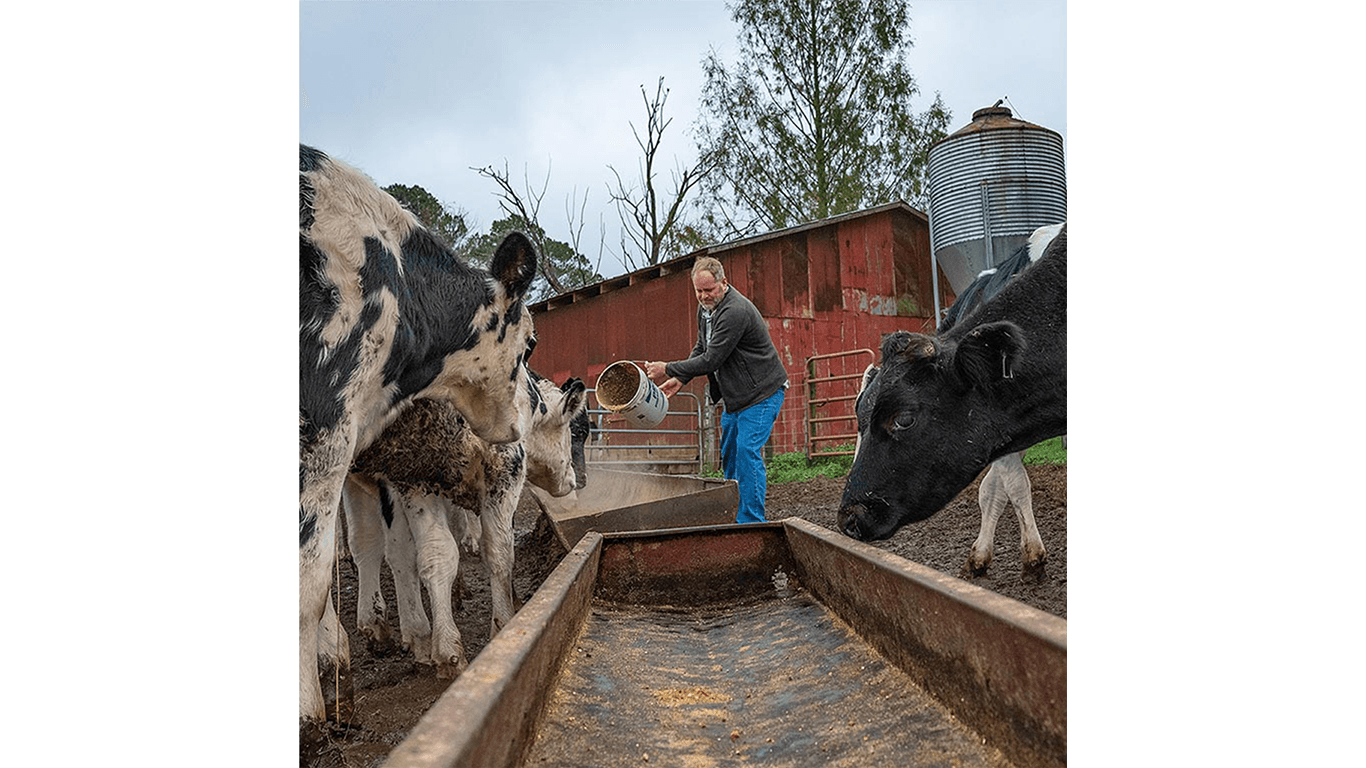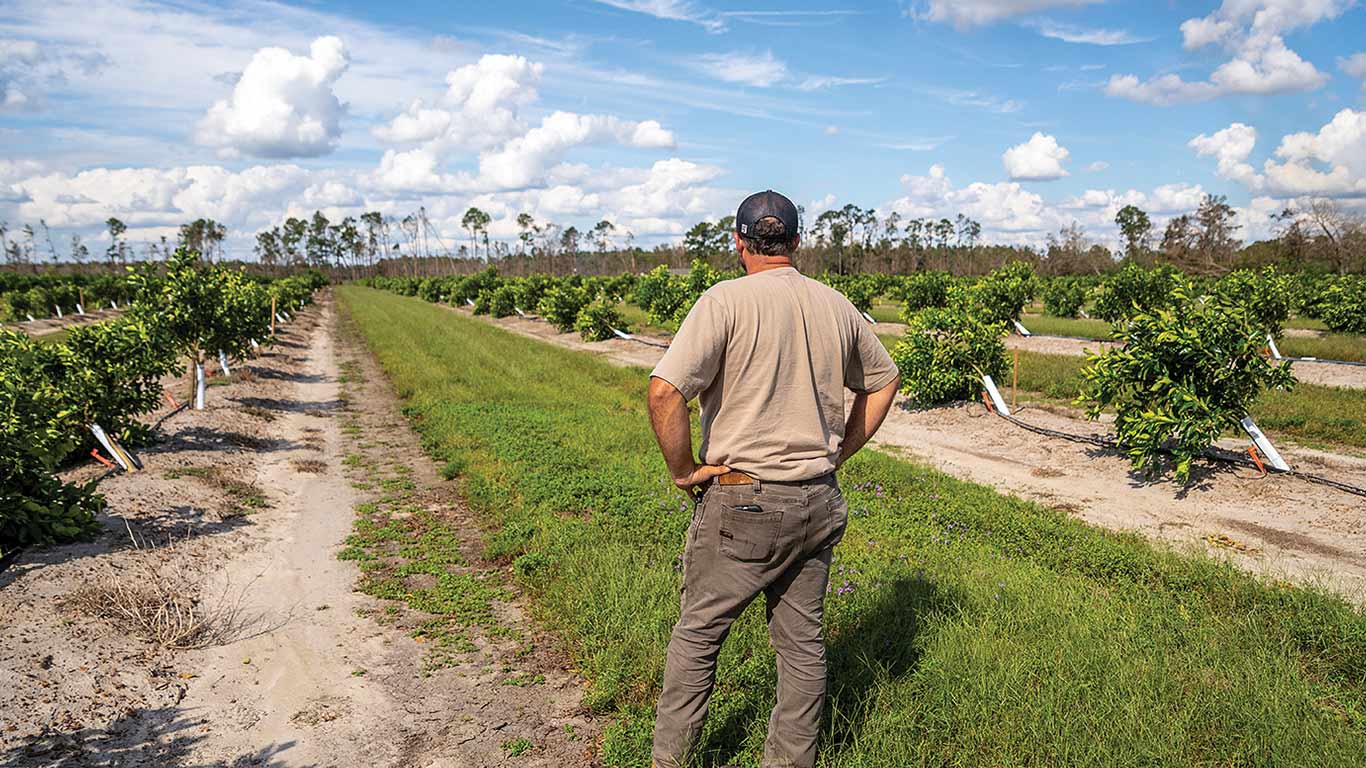Agriculture, Education September 01, 2025
Safeguarding Your Rural Dream
Prepare before the power goes out.
by Katie Knapp
As Hamp Gillis crouched amid his family's citrus grove in southern Georgia on a warm, blue-sky day early last October, surveying Hurricane Helene's damage, his heart broke. About 95% of his mandarin orange trees were toppled over, their shallow root systems exposed, and water lines tangled and torn.
This was supposed to be his farming opportunity and his family's investment in the future.
"My mind is in 100 different places," Gillis said softly. "Are we actually going to be able to grow citrus in Georgia? Was this the right investment to make?"
Discussing the financial and emotional weight of the situation was physically gut-wrenching for him. "I talked everybody into spending money on something that may or may not work."
Gillis has always wanted to farm. As he and his cousin watched the citrus industry wane in California and Florida and the blueberry industry take off in Georgia, they saw opportunity to turn a relatively low-value, 40-acre row crop field into a high-value, citrus orchard.
They knew getting in early came with extra risk, but as they waited for their young trees to establish insurable yield, they thought more cold weather and frost than their Florida counterparts would be the biggest worry.
Instead, they weathered three hurricanes in two years.
Several months after Hurricane Helene hit, Coffee County Extension agent Ashley Smith says everyone is still exhausted from cleanup efforts. "We could have planned all we wanted to, but we couldn't have anticipated Helene's impact," she reflects, still feeling as defeated as her Douglas, Ga., farmers.
The storm's aftermath revealed critical blind spots for many rural property owners, from power outages lasting weeks to damaged infrastructure and water system contamination.
"One thing everyone here agrees on now is when the power goes out, you better have a generator if you want to have some peace in your house," Smith says with a chuckle. Beyond running air conditioners and refrigerators, they also ran wells and other farm equipment for weeks before all the power was restored.
Above. Hurricane Helene tore through eastern Georgia September 26, 2024. State officials estimate at least $5.5 billion in ag and timber losses. Even through the storms, Gillis says he has enjoyed watching the trees grow and eating the first few oranges.
Planning for the worst. Preparing for possible farm and homestead disasters involves more than just having a generator.
Emily Krekelberg, University of Minnesota Extension farm safety and health educator, works with property owners across the country to help them plan for the complete picture of rural living.
Krekelberg recommends developing comprehensive emergency action plans tailored to specific situations, including shelter-in-place events, evacuation scenarios, and medical emergencies.
In all cases, she suggests creating a labeled map of your farm or homestead so first responders can easily find critical infrastructure and access points, review plans with your fire and sheriff's departments and insurance agents, and update and share it with your whole family and staff regularly.
"I want you to think about your farm," she tells property owners. "What is your farm's headline? You want it to be good, and you have a role in what is written about your farm after something happens. Simply put, having a plan reduces vulnerability."
Planning templates are available at extensiondisaster.net and extension.umn.edu/farm-safety/creating-farm-emergency-action-plans
It takes a village. Many move to rural acreage and are drawn to farm life for the solitude, but connecting with the right people before disaster strikes may be just as important as any written plan. This includes your Extension agent, FSA staff, county emergency management services, neighbors, and like-minded farmers.
Smith says, "If you're doing something new like growing citrus in Georgia, you better find some people who farm and think like you, even if they are states away. You can figure out most of the practical on-farm things just by doing it, but sometimes the best advice is when someone tells you what not to do because they've already tried it."
For Gillis, the learning curve has been steep but knowing who to ask for advice has helped.
Talking with Florida citrus growers, he knew he had to stand his trees back up and get the water back on as soon as possible. So, not knowing yet if they would survive, his crew immediately started fixing irrigation lines and standing up each citrus tree while he was clearing pine trees off houses and power lines.
Perhaps that's the essence of the rural dream—not just the sunsets and clean air, but the resilience to face the unexpected and the wisdom to build connections that sustain us through whatever comes. ‡
Read More

RURAL LIVING, EDUCATION
Going Bats!
Among nature’s most misunderstood creatures.

AGRICULTURE, FARM OPERATION
Strength in Numbers
Working together keeps seven-gen farm family ticking.




